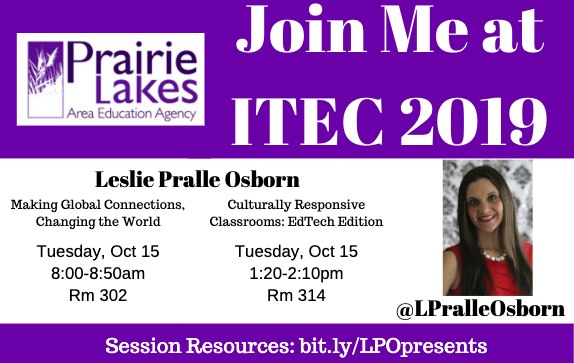If we’ve chatted recently, you probably know that I’m pretty much obsessed with Voxer. In fact, I even find myself getting annoyed with people that I have to send text messages to, because I’d much rather just Vox them. If you are unfamiliar with Voxer, it is a real-time walkie talkie app that allows for one-on-one or group conversations, available for Android, iOS, and Windows 8 phones/tablets. You can check out their tutorial on YouTube.
So, two worlds seemed to collide for me yesterday. One of the #satchat Voxer group members (@ashleyhhurley) asked for help sharing Voxer by asking each of us to tell about how we use Voxer in our lives. I shared about connecting with my team, connecting with my PLN, and using it to stay connected to my children when I travel. I suggested that as a classroom application, students could use Voxer for podcasting purposes. So classroom Voxing was on my mind.
In our team meeting, Scott McLeod (@mcleod) asked how we are making sure that we document learning that is part of the process, that may not be captured in the final product. For example, when you look at a student drawing or video or other product, do you always see the learning explicitly? If Erin Olson (@eolsonteacher) and I use Out My Window to ask a student to edit a photo to show mood and tone, and Scott looks at the picture, will he be able to see the learning that has taken place? Not necessarily. I can tell you that I made my photo tinted blue to enhance the feeling of being cold that comes with a first snow, but if we don’t have that conversation, the average Joe may not see that the learning took place.
So this is where my worlds collide. What if we used Voxer as a means of capturing the student learning process? Sure we could write a blog post or a written reflection, but Voxer would allow students to do this in a different capacity.
I loved Voxer before, but I’m really excited about the implications now. I’d love to hear about ways others are using Voxer in the classroom and helpful tips on managing accounts! Leave comments or Vox me! I’m LPRALL768!
So, two worlds seemed to collide for me yesterday. One of the #satchat Voxer group members (@ashleyhhurley) asked for help sharing Voxer by asking each of us to tell about how we use Voxer in our lives. I shared about connecting with my team, connecting with my PLN, and using it to stay connected to my children when I travel. I suggested that as a classroom application, students could use Voxer for podcasting purposes. So classroom Voxing was on my mind.
In our team meeting, Scott McLeod (@mcleod) asked how we are making sure that we document learning that is part of the process, that may not be captured in the final product. For example, when you look at a student drawing or video or other product, do you always see the learning explicitly? If Erin Olson (@eolsonteacher) and I use Out My Window to ask a student to edit a photo to show mood and tone, and Scott looks at the picture, will he be able to see the learning that has taken place? Not necessarily. I can tell you that I made my photo tinted blue to enhance the feeling of being cold that comes with a first snow, but if we don’t have that conversation, the average Joe may not see that the learning took place.
So this is where my worlds collide. What if we used Voxer as a means of capturing the student learning process? Sure we could write a blog post or a written reflection, but Voxer would allow students to do this in a different capacity.
- Students could record their thoughts into a thread while creating, or after they finished to narrate their learning process for themselves or for their teacher.
- Because Voxer allows for text and photos, students could add a URL or photo of the work that they are discussing
- Students could narrate the learning process into a group Vox to be shared with classmates, parents, or some other appropriate audience. A conversation can now take place around the learning, benefiting from the learning and perspectives of others.
- Voxer audio files can be exported as simple audio files, emails, Tweets etc. Now those micro podcasts and student learning processes can be captured and made transparent on websites, blogs, and social media. They could even be attached to student work via QR codes or an augmented reality app.
I loved Voxer before, but I’m really excited about the implications now. I’d love to hear about ways others are using Voxer in the classroom and helpful tips on managing accounts! Leave comments or Vox me! I’m LPRALL768!

 RSS Feed
RSS Feed
